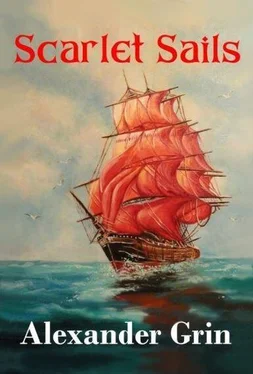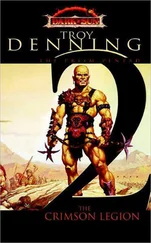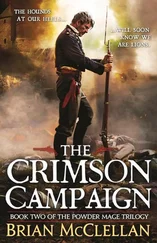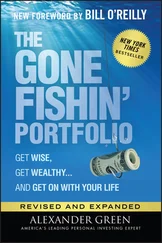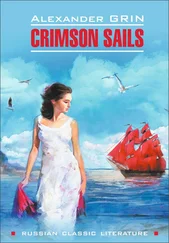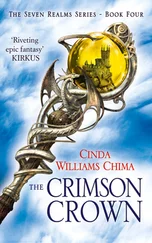Alexander Grin - CRIMSON SAILS
Здесь есть возможность читать онлайн «Alexander Grin - CRIMSON SAILS» — ознакомительный отрывок электронной книги совершенно бесплатно, а после прочтения отрывка купить полную версию. В некоторых случаях можно слушать аудио, скачать через торрент в формате fb2 и присутствует краткое содержание. Жанр: Классическая проза, на английском языке. Описание произведения, (предисловие) а так же отзывы посетителей доступны на портале библиотеки ЛибКат.
- Название:CRIMSON SAILS
- Автор:
- Жанр:
- Год:неизвестен
- ISBN:нет данных
- Рейтинг книги:4 / 5. Голосов: 1
-
Избранное:Добавить в избранное
- Отзывы:
-
Ваша оценка:
- 80
- 1
- 2
- 3
- 4
- 5
CRIMSON SAILS: краткое содержание, описание и аннотация
Предлагаем к чтению аннотацию, описание, краткое содержание или предисловие (зависит от того, что написал сам автор книги «CRIMSON SAILS»). Если вы не нашли необходимую информацию о книге — напишите в комментариях, мы постараемся отыскать её.
CRIMSON SAILS — читать онлайн ознакомительный отрывок
Ниже представлен текст книги, разбитый по страницам. Система сохранения места последней прочитанной страницы, позволяет с удобством читать онлайн бесплатно книгу «CRIMSON SAILS», без необходимости каждый раз заново искать на чём Вы остановились. Поставьте закладку, и сможете в любой момент перейти на страницу, на которой закончили чтение.
Интервал:
Закладка:
This notion of a captain, this image and this actual reality of his position occupied, by right of events of the spirit, the place of honour in Gray's splendid imagination. No other profession save this could so successfully fuse into a single whole all the treasures of life, while preserving inviolable the most delicate design of each separate joy. Danger, risk, the forces of nature, the light of a distant land, the wondrous unknown, effervescent love, blossoming in rendezvous and parting; the fascinating turmoil of encounters, faces, events; the endless variety of life, while up above in the sky was now the Southern Cross, now the Big Dipper, and all the continents were in one's keen eyes, though your cabin was replete with your ever-present homeland, with its books, pictures, letters and dried flowers entwined by a silken strand of hair in a suede locket on your manly chest.
In the autumn of his fifteenth year Arthur Gray ran away from home and passed through the golden gates of the sea. Soon after the schooner Anselm left Dubelt and set sail for Marseilles, with a ship's boy aboard who had small hands and the face of a girl dressed in boy's clothing. The ship's boy was Gray, the owner of an elegant travelling-bag, patent leather boots as fine as kid gloves and batiste linen adorned with a crown crest.
In the course of a year, while the Anselm sailed from France to America and Spain, Gray squandered a part of his possessions on pastry-cakes, thus paying tribute to the past, and the rest, for the present and future, he lost at cards. He wanted to be a red-blooded sailor. He choked as he downed his liquor, and when bathing, his heart would falter as he dived from a height of twelve feet. He gradually lost everything except that which was most important-his strange, soaring spirit; he lost his frailty, becoming broad of bone and strong of muscle, his paleness gave way to a deep tan, he relinquished his refined carelessness of movement for the sure drive of a working hand, and there was a sparkle in his intelligent eyes as in a person's who gazes into a fire. And his speech, having lost its uneven, haughtily shy fluidity, became brief and precise, as the thrust of a seagull at the quivering silver of a fish.
The captain of the Anselm was a kind man, but a stern seafarer who had taken the boy on out of maliciousness. He saw in Gray's desperate desire but an eccentric whim and gloated in advance, imagining that in two months' time Gray would say, avoiding his eyes: "Captain Hop, I've skinned my elbows climbing the rigging; my back and sides ache, my fingers don't bend, my head is splitting and my legs are shaky- All these wet ropes weighing eighty pounds to balance in my hands; all these manropes, guy ropes, windlasses, cables, topmasts and cross-trees are killing my delicate body. I want to go home to my mamma." After listening mentally to this speech, Captain Hop would deliver, also mentally, the following speech: "You can go wherever you want to, ducky. If any tar's got stuck on your fine feathers you can wash it off at home – with Rose-Mimosa Cologne." This cologne that Captain Hop had invented pleased him most of all and, concluding his imaginary rebuke, he repeated aloud: "Yes. Run along to Rose-Mimosa."
As time went by this impressive dialogue came to the captain's mind less and less frequently, since Gray was advancing towards his goal with clenched teeth and a pale face. He bore the strenuous toil with a determined effort of will, feeling that it was becoming ever easier as the stern ship broke into his body and ineptitude was replaced by habit. On occasion the loop of the anchor chain would knock him off his feet, slamming him against the deck, or a rope that was not wound around the bitts would be torn out of his hands, taking the skin off his palms, or the wind would slap the wet corner of a sail with an iron ring sewn into it against his face; in a word, all his work was torture which demanded the utmost attention, yet, no matter how hard he breathed as he slowly straightened his back, a scornful smile never left his face. In silence did he endure all the scoffing, taunts and inevitable cursing until he became "one of the boys" in his new surroundings, but from then on he always countered an insult with his fists.
Once, when Captain Hop saw him skilfully tying a sail toll a yard, he said to himself: "Victory is on your side, you scoundrel." When Gray climbed down to the deck Hop summoned him to his cabin and, opening a dog-eared book, said:
"Listen closely. Stop smoking! We'll start fitting the pup out to be a captain."
And he began to read or, rather, to enunciate and shout the ancient words of the sea. This was Gray's first lesson. In the course of a year he got to know about navigation, shipbuilding, maritime law, sailing directions and bookkeeping. Captain Hop proffered him his hand and referred to the two of them as "we".
His mother's letter, full of tears and dread, caught up with Gray in Vancouver. He replied: "I know. But if you could only see as I do: look at things through my eyes. If you could only hear as I do: put a seashell to your ear-it carries the sound of an eternal wave; if you could only love as I do-everything, I would have found in your letter, besides love and a cheque, a smile." And he went on sailing until the Anselm arrived with a cargo for Dubelt from whence, while the ship was docked, the twenty-year-old Gray set off to visit the castle.
Everything was as it had always been; as inviolable in detail and in general impression as five years before, although the crowns of the young elms were larger; the pattern they made on the facade of the building had moved and expanded.
The servants who came running were overjoyed, startled and froze as respectfully as if they had but yesterday greeted this Gray. He was told where his mother was; he entered the high chamber and, drawing the door shut softly, stopped soundlessly, gazing at the woman, now turned grey, in the black dress. She was standing before a crucifix; her fervent whisper was as audible as the pounding of a heart. "And bless those at sea, the wayfarers, the sick, the suffering and the imprisoned," Gray heard the words as he breathed rapidly. There followed: "And my boy… " Then he said: "Here…" But he could say no more. His mother turned. She had become thinner; a new expression lit up the haughtiness of her chiselled face, like the return of youth. She hurried towards her son; a burst of throaty laughter, a restrained exclamation and tears of her eyes-this was all. But in that moment she lived – more fully and happier than in the whole of her previous life.
"I recognized you instantly, my darling, my baby!"
And Gray indeed ceased being grown-up. He listened to her tale of his father's death and then told her about himself. She heeded him without reproach or protestation, but to herself-in everything he contended was the essence of his life,- she saw but toys her boy was playing with. These playthings were the continents, oceans and ships.
Gray spent seven days in the castle; on the eighth day, having taken along a large sum of money, he returned to Dubelt and said to Captain Hop:
"I thank you. You've been a good friend. Farewell now, my mentor." He sealed the word with a handshake as fierce as an iron vice. "From now on I'll be sailing alone, on a ship of my own."
The blood rushed to Hop's head, he spat, yanked his hand away and stalked off, but Gray overtook him and put his arm around his shoulders. And so they went to a tavern all together, twenty-four of them, counting the crew, and drank, and shouted, and sang, and ate, and downed everything there was in the bar and in the kitchen.
But a short while later the evening star flashed above the black line of a new mast in the Port of Dubelt. It was the Secret, a two-hundred-and-sixty-ton, three-masted galliot Gray had purchased. Arthur Gray sailed it for four more years as the owner and captain until chance brought him to Liss. However, he had remembered for always that short burst of throaty laughter that had greeted him at home, and so twice a year he visited the castle, leaving the silver-haired woman with an uncertain conviction that such a big boy might perhaps be able to handle his toys after all.
Читать дальшеИнтервал:
Закладка:
Похожие книги на «CRIMSON SAILS»
Представляем Вашему вниманию похожие книги на «CRIMSON SAILS» списком для выбора. Мы отобрали схожую по названию и смыслу литературу в надежде предоставить читателям больше вариантов отыскать новые, интересные, ещё непрочитанные произведения.
Обсуждение, отзывы о книге «CRIMSON SAILS» и просто собственные мнения читателей. Оставьте ваши комментарии, напишите, что Вы думаете о произведении, его смысле или главных героях. Укажите что конкретно понравилось, а что нет, и почему Вы так считаете.
